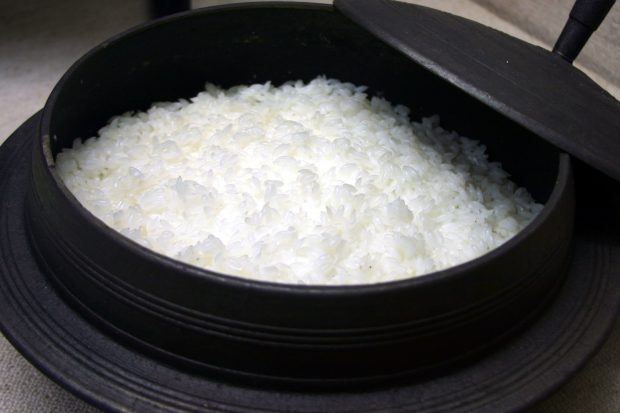N. Korea refusing to accept Seoul’s food aid over allies’ joint military drill

North Korea is refusing to accept food assistance from South Korea, citing Seoul’s planned joint military exercise with the United States, a unification ministry official said Wednesday. The North delivered the message during its working-level talks with the World Food Programme (WFP), through which Seoul intended to deliver the promised 50,000 tons of rice. “It is true that this message has been delivered in the course of working-level discussions (between the North and the WFP),” the official told reporters on condition of anonymity.
The WFP’s Pyongyang bureau is still in talks with the North’s foreign ministry over the issue, the official said. The government is currently trying to confirm whether the refusal is the North’s final decision, and the preparations for the rice shipment are expected to remain stalled until after the North makes its final call. North Korea has not turned down Seoul’s previous aid offers when an international aid agency was involved as an intermediary. South Korea unveiled the plan to provide 50,000 tons of food assistance to North Korea last month to help the impoverished country address its worsening food shortages. It has been pushing to make the first shipment of the domestically harvested rice this month, with an aim to complete its delivery by September.
On Tuesday, another ministry official said the overall delivery procedure is taking longer time than expected, declining to confirm whether the shipment will be able to begin this month. Earlier in the day, a local daily reported that North Korea has told the WFP it will not receive the rice due to the allies’ joint military exercise. Following the media report, Kim Eun-han, the ministry’s deputy spokesperson, said the government hopes the food assistance will be delivered as planned to support North Koreans from a humanitarian perspective. South Korea’s decision to provide the food aid came amid a series of reports on the worsening food security situation in North Korea.
In February, North Korea’s top envoy to the U.N. requested emergency food assistance, saying that his country will suffer a food shortage estimated at around 1.5 million tons this year. The WFP and the Food and Agriculture Organization said North Korea’s crop output last year hit the lowest level since 2008, with an estimated 10 million people, or 40 percent of its population, in urgent need of food. The U.S. Department of Agriculture (USDA) also estimated the North’s rice production to stand at 1.36 million tons this year, unchanged from last year’s lowest production in a decade and down 17 percent from the five-year average.
The assessment was based on satellite-derived indices and agroclimatic indicators, it said in the Commodity Intelligence Report. “If these conditions continue or worsen, the DPRK could face an agricultural drought, with further implications for food security and worsening water shortages,” the USDA said. DPRK stands for the North’s official name, the Democratic People’s Republic of Korea. The latest shift in North Korea’s attitude came in line with the North’s increased criticism of the allies’ joint military exercise slated for next month. The North’s foreign ministry warned last week that the drill could affect the prospects of working-level nuclear talks that its leader Kim Jong-un and U.S. President Donald Trump agreed to resume at their surprise meeting on June 30.
(Yonhap)





















































